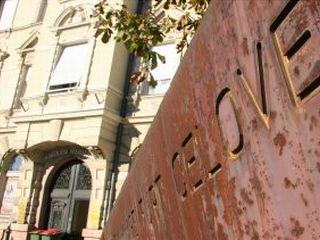
Most of the historic province of Carinthia is now a part of Austria, but for centuries, it was at the heart of Slovenian cultural life. It was also the home of Andrej Einspieler, a key figure in the Slovenian national revival of the 19th century.
Einspieler was born in 1813 in the small village of Suetschach, known in Slovenian as Sveče. After completing his studies, he opted for life in the priesthood, but he was increasingly interested in the status of his fellow Slovenians.
Influenced by other priests and intellectuals, he emerged as a passionate advocate of the United Slovenia program that had emerged in the wake of the 1848 revolutions. At the time, the Slovenian population of Austria was divided among several different Crown Lands. The United Slovenia program called for the formation of a Slovenian political unit within Austria-Hungary. Einspieler called for a division of Carinthia into two districts, one Slovenian and the other German. He urged his congregations to preserve the Slovenian language, advocated Slovenian-language instruction in schools, and was vocally opposed to the notion that Carinthia was German province.
Einspieler also realized that culture was the key factor in Slovenian national unity. He became one of the cofounders of the Hermagoras Society in Klagenfurt, which still exists as the oldest Slovenian-language publisher in the world.
In later years, Einspieler modified his views somewhat. He became enthralled with the idea of Inner Austria, a joint homeland for both Slovenians and ethnic Germans. Even though he advocated decentralization and some liberal reforms, his views were increasingly seen as conservative as other Slovenian intellectuals began to favor more radical steps towards national self-determination. Einspieler was no longer at the vanguard of the Slovenian national movement, and by the time he died in 1888, his political influence had diminished.
But his cultural legacy lived on. A post-World War I referendum gave Carinthia to Austria, but the Slovenian community managed to survive despite a strong Germanization drive. Now dubbed the “Father of Carinthian Slovenians,” Einspieler is widely respected among local intellectuals. And since the 1970s, the Einspieler Awards are given out to those who promote harmony in Europe’s multiethnic regions.

































































